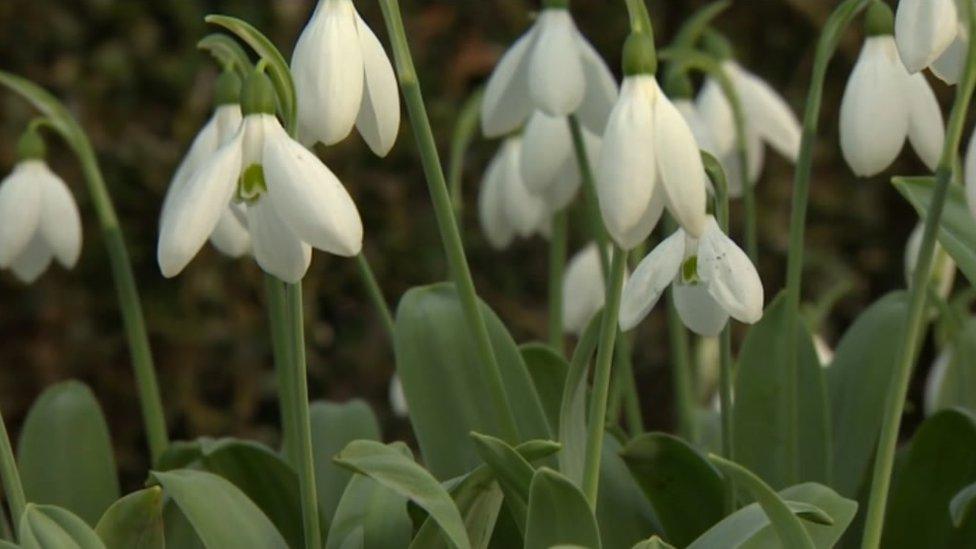New insect corridor created to boost nature
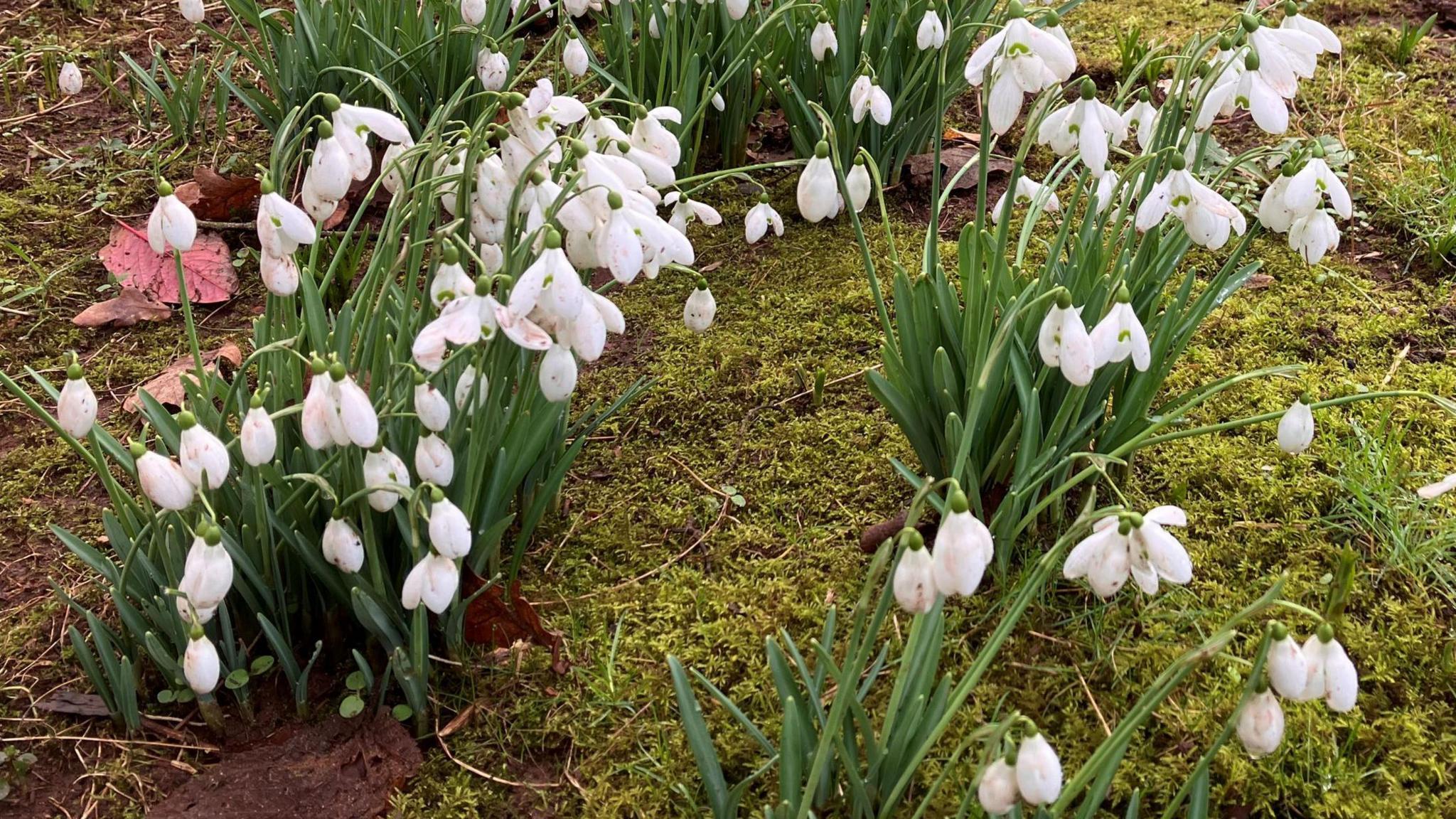
More thans 85,000 snowdrop, crocus and tulip bulbs have been planted along Emerson Way
- Published
Thousands of spring bulbs have been planted on road verges to create an insect corridor as part of a project to reverse the decline in nature.
More than 85,000 snowdrop, crocus and tulip bulbs have been planted along Emerson Way in Emersons Green, near Bristol.
It is part of South Gloucestershire Council's Common Connections project, external, a four-year scheme to create new habitats.
The planting of the "nectar-rich corridor that pollinators will love" was helped by more than 700 volunteers and the town council.
The council has also worked with 11 schools and 2,000 pupils to plant hedgerows and trees to help make their grounds better for wildlife.
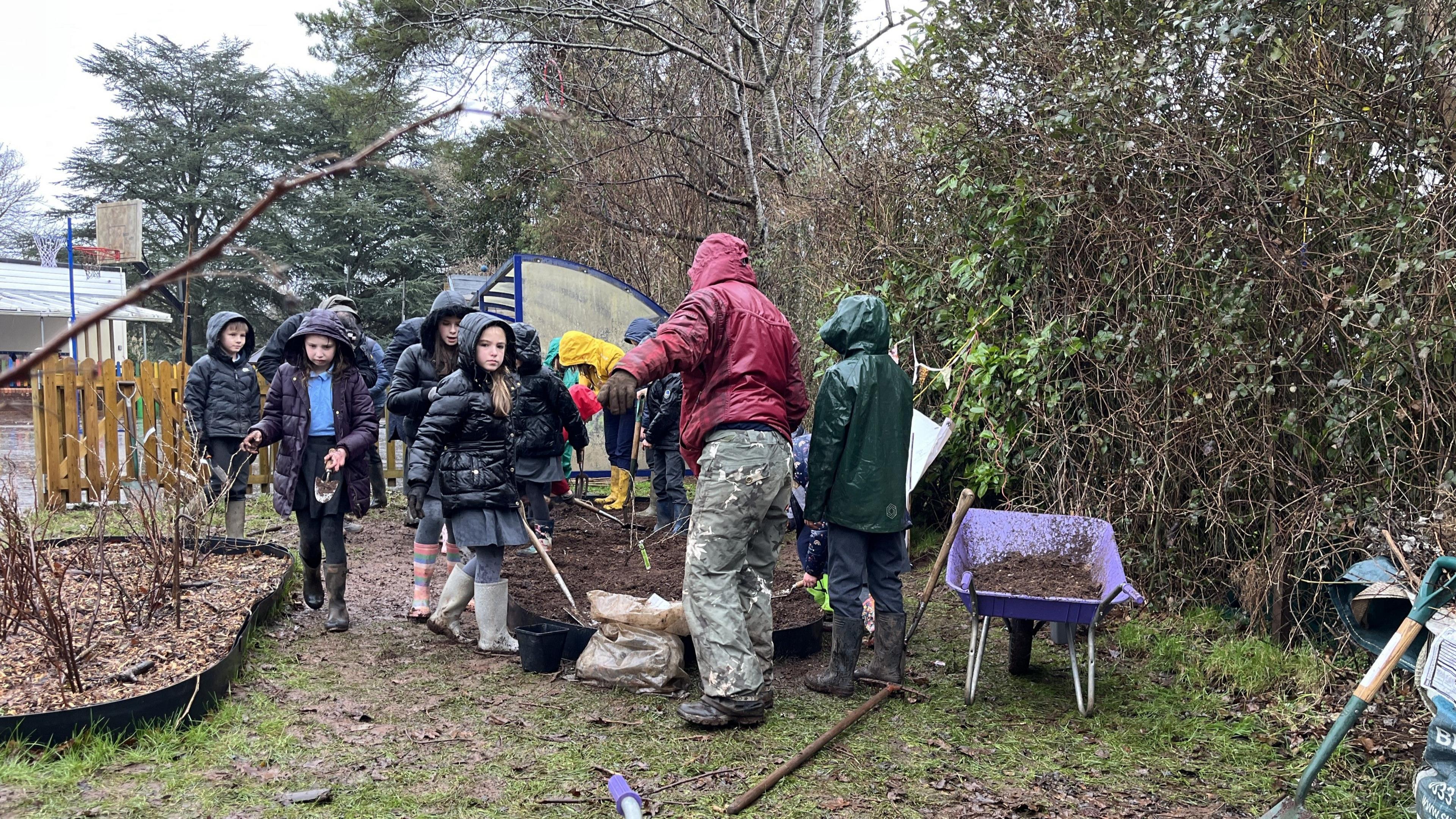
Students at Wick Primary School have been planting fruit trees
In the two years the Common Connections project has run, nearly 70,000 sq m (753,473 sq ft) of new wildflower areas have been planted, along with 400 fully grown trees.
Six ponds have also been created and 50 bird and bat boxes have been installed.
Councillor Louise Harris, cabinet member responsible for climate and nature emergency, said: "We're really pleased with the progress made at the halfway point of our Common Connections project.
"We're helping nature to thrive by restoring natural habitats in the area and connecting nearby green spaces, such as commons, woodlands and grasslands.
"Managing this land to support a diverse range of plants, insects and animals will also help strengthen the area's resilience to the effects of climate change."
Get in touch
Tell us which stories we should cover in Bristol
Follow BBC Bristol on Facebook, external, X, external and Instagram, external. Send your story ideas to us on email or via WhatsApp on 0800 313 4630.
Related topics
- Published9 October 2024
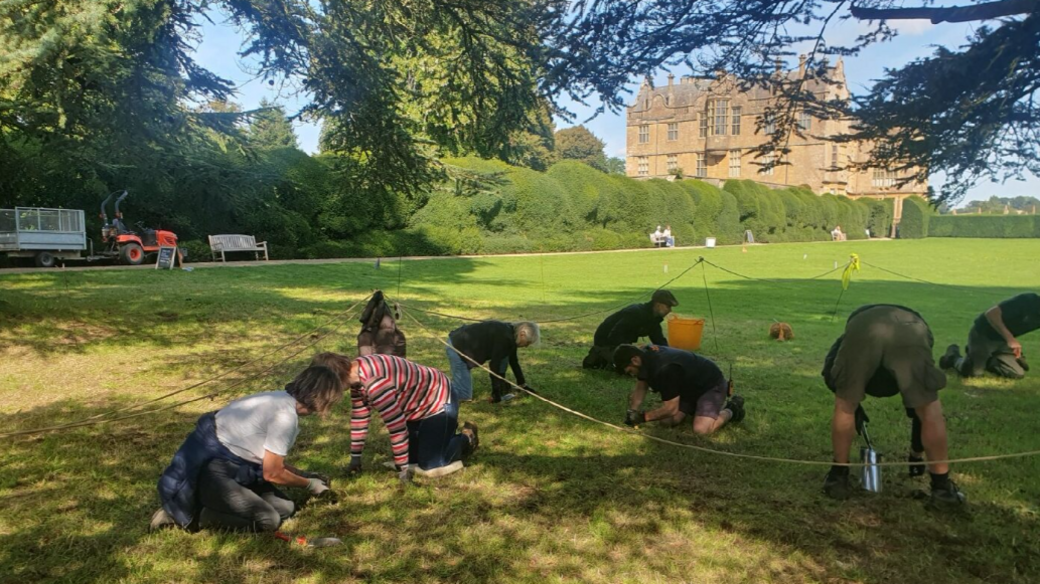
- Published14 February 2024
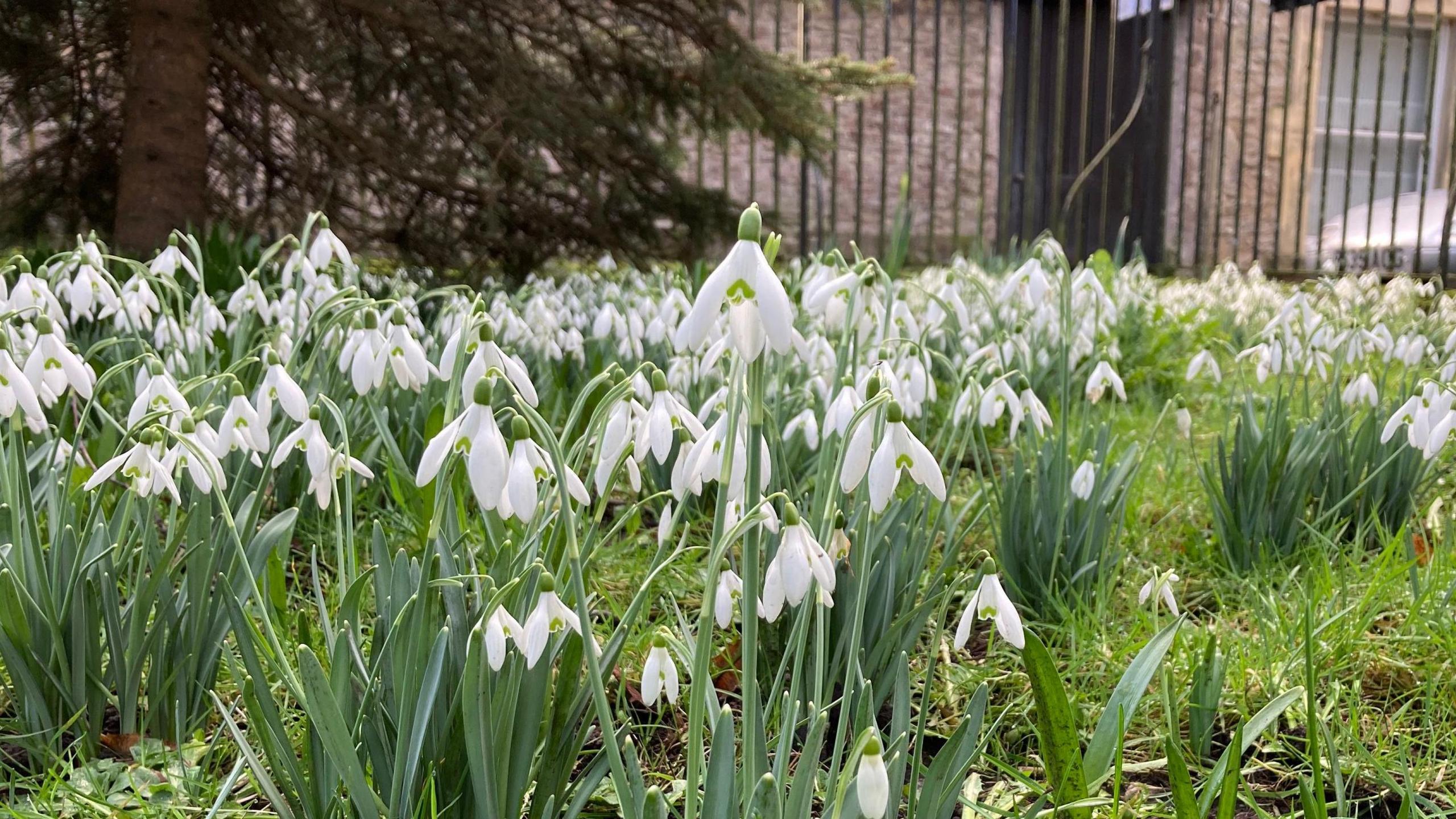
- Published3 February 2024
